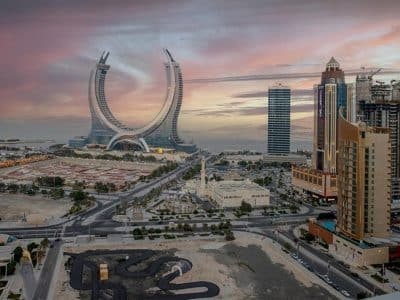Abu Dhabi farm economic activities have officially been expanded to 145, allowing farms across the emirate to engage in new ventures that strengthen food security, diversify income, and promote tourism. This decision, announced by His Highness Sheikh Mansour bin Zayed Al Nahyan, Vice President and Deputy Prime Minister of the UAE, reflects Abu Dhabi’s commitment to sustainable agriculture and rural economic growth.
Introduction
Abu Dhabi’s agricultural landscape is undergoing a transformation. The recent approval of 145 economic activities on farms marks a pivotal step in the emirate’s strategy to enhance local food production, create new economic opportunities, and attract tourists to its rural areas. This initiative aligns with the UAE’s broader National Food Security Strategy 2051, which seeks to make the country a global leader in food security by the middle of the century.
Expanding the Horizon: 145 Economic Activities Approved
Under Decision No. (5) of 2025, Sheikh Mansour bin Zayed Al Nahyan has authorized the addition of 74 new economic activities to the existing list, bringing the total to 145. These activities are categorized into six main groups:

- Plant Production (41 activities): Including the cultivation of various crops and horticultural products.
- Supporting Plant Production (9 activities): Such as seedling nurseries and soil enhancement services.
- Food Support Services (8 activities): Including food processing and packaging.
- Industrial Support Activities (12 activities): Covering areas like equipment maintenance and agricultural machinery services.
- General Support Services (2 activities): Including logistics and storage solutions.
- Recreational Activities (2 activities): Such as farm tours and educational workshops.
This expansion allows farm owners and licensed establishments in Abu Dhabi to diversify their operations, making agriculture a more viable and profitable endeavor.
Enhancing Food Security

The primary objective of this initiative is to strengthen food security in Abu Dhabi. By enabling farms to engage in a wider range of activities, the emirate aims to increase local production of food items, reducing reliance on imports and ensuring a more resilient food supply chain. This move is in line with the UAE’s National Food Security Strategy 2051, which focuses on sustainable agricultural practices and innovation to boost domestic food production.

Promoting Agri-Tourism
In addition to enhancing food security, the approved activities also aim to promote agri-tourism. By allowing farms to offer recreational activities such as farm tours and educational workshops, Abu Dhabi seeks to attract tourists to its rural areas. This not only provides additional income streams for farmers but also educates the public about sustainable farming practices and the importance of local food production.
Economic Diversification and Investment Opportunities
The inclusion of industrial support activities and general support services opens new avenues for investment in the agricultural sector. Entrepreneurs and investors can now explore opportunities in areas like agricultural machinery maintenance, logistics, and food processing, contributing to the diversification of Abu Dhabi’s economy. This aligns with the emirate’s broader economic vision to reduce dependence on oil revenues and foster sustainable economic growth.
Implementation and Oversight
The Abu Dhabi Agriculture and Food Safety Authority (ADAFSA) is responsible for overseeing the implementation of this decision. Farm owners and licensed establishments must ensure that the built-up area used for these economic activities does not exceed the area determined by the competent authority in the emirate. Additionally, farms must continue to operate in accordance with their designated agricultural purposes.

This regulatory framework ensures that the expansion of economic activities on farms is carried out in a sustainable and controlled manner, preserving the integrity of Abu Dhabi’s agricultural land.
Benefits to Local Communities
Expanding economic activities on farms is expected to create numerous benefits for local communities. Farmers will have the opportunity to increase their income, diversify their offerings, and improve operational efficiency. The initiative also encourages knowledge sharing through workshops and training programs, promoting best practices in sustainable agriculture. As farms develop into centers for tourism and learning, communities around these farms will experience growth in services such as hospitality, transportation, and retail, enhancing overall socio-economic development.
Environmental Sustainability
Alongside economic and social benefits, the initiative emphasizes environmental sustainability. Farms are encouraged to adopt eco-friendly practices such as precision irrigation, organic fertilization, and renewable energy use. By supporting sustainable agricultural methods, Abu Dhabi ensures that expansion does not come at the cost of natural resources. This approach aligns with the UAE’s commitment to environmental conservation and responsible development.
Looking Ahead
The approval of 145 economic activities on farms is a forward-thinking move that positions Abu Dhabi as a leader in sustainable agriculture and agri-tourism. By diversifying farm operations and promoting local food production, the emirate is not only enhancing food security but also creating a vibrant rural economy that attracts tourists and investors alike.
As this initiative unfolds, it will be crucial to monitor its impact on local communities, the environment, and the broader economy. With continued support and innovation, Abu Dhabi’s agricultural sector is poised for a sustainable and prosperous future.
Do follow UAE Stories on Instagram
Read Next – ADNOC Gas Joins FTSE Emerging Index, Unlocking $250M Investment














